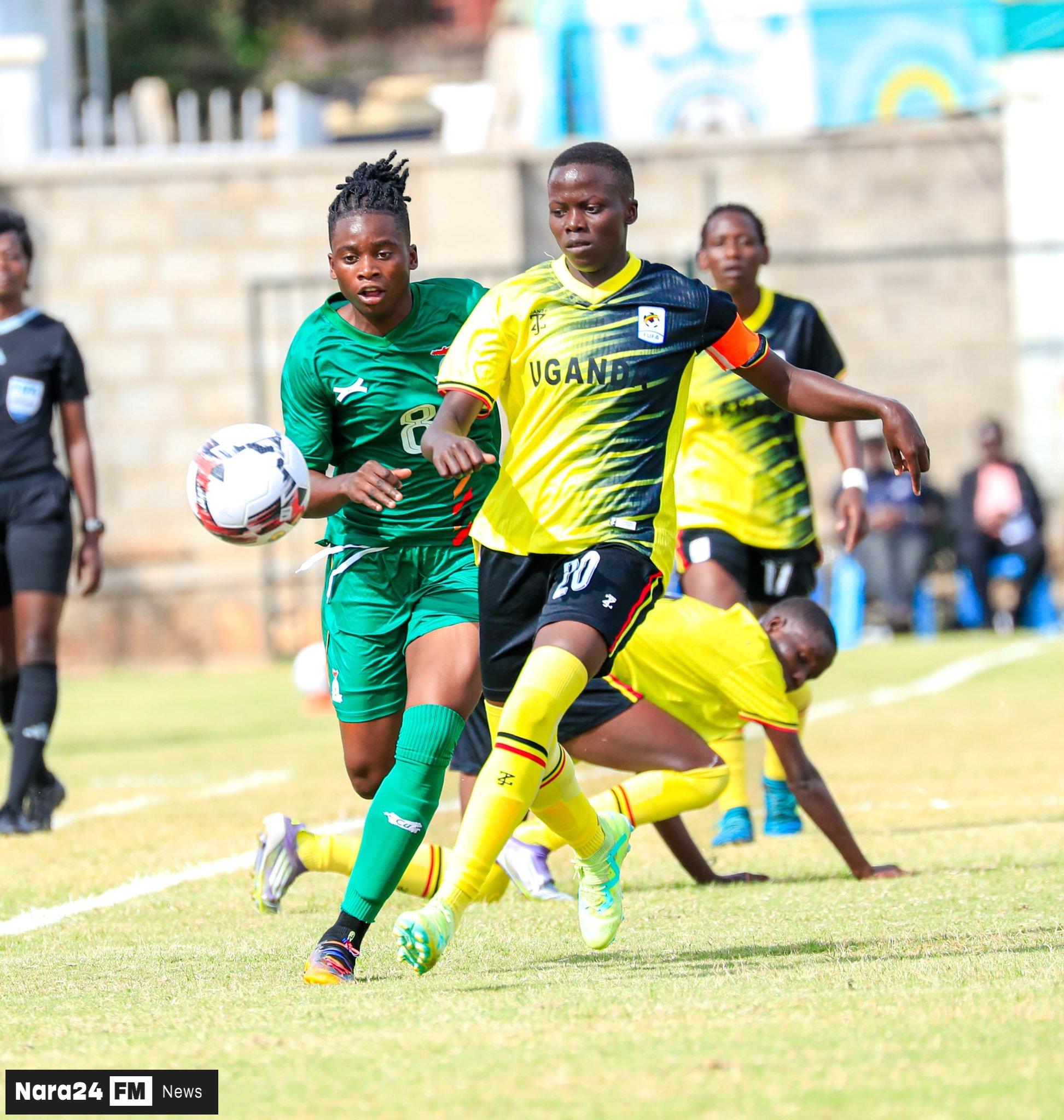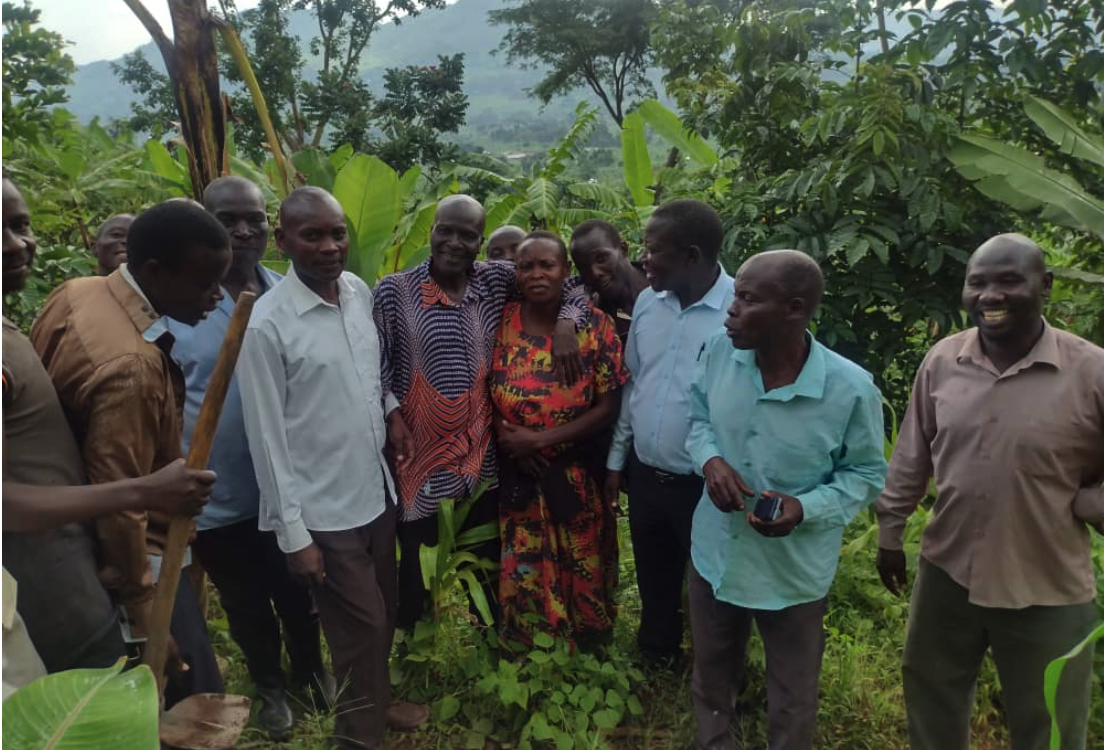
Uganda's U20 Women's Team Advances to Final Qualifying Round with Win Over Zambia
Uganda's U20 women's team has booked a place in the final qualification round of the FIFA U20 Women's World Cup by defeating Zambia.
Court ruling challenges cultural norms as widow wins land case in Manafwa Manafwa — In a landmark ruling that could shift long-held cultural attitudes about women’s land rights in Uganda, a widow who spent just four years in marriage before leaving the country for 17 years has reclaimed...

Manafwa — In a landmark ruling that could shift long-held cultural attitudes about women’s land rights in Uganda, a widow who spent just four years in marriage before leaving the country for 17 years has reclaimed ownership of matrimonial property following a protracted legal battle.
Grace Nandutu, a widow from Namilama Village in Manafwa District, has successfully regained possession of land that once belonged to her late husband, Maena Ignatius.
The High Court decision comes after nearly eight years of litigation and has ignited public discourse on inheritance rights, spousal consent, and the intersection of customary and statutory law.
Nandutu married Maena in a traditional ceremony in 1996. The couple had two daughters before she migrated to Kenya in 2000 in search of employment.
She remained abroad until 2017, when she returned to Uganda upon learning of her husband's death.
However, she was shocked to find her matrimonial home demolished and the family land sold and redistributed without her knowledge or consent.
Her late husband’s relatives and subsequent land buyers had taken over the property, arguing that she had forfeited her claim by abandoning the marriage.
“She disappeared for 17 years. How can she come back to claim land after being gone so long?” one relative of the deceased asked, echoing a widespread sentiment in communities where widows are often denied inheritance under cultural norms.
Unwilling to accept this, Nandutu immediately demanded her rightful share and in August 2017 filed a civil suit against eight defendants, including her husband’s relatives and individuals who had purchased parts of the land.
She argued that the property had been wrongfully sold during her absence and included parcels she had acquired herself.
The disputed land includes two plots in Bulwendede village, Bunyinza Parish—measuring approximately 28x18 meters and 141x38 meters—which Nandutu claims she bought from a one Mayeku James in 1997.
A third piece in Bunatnga village, Maefe Parish, she asserts was gifted to her by her late husband during their marriage.
In 2021, the Magistrate’s Court dismissed her case with costs, citing lack of sufficient evidence to support her claims.
But Nandutu refused to give up. She appealed to the High Court in Mbale, determined to assert her rights.
In May 2024, High Court Judge Farouq Lubega overturned the lower court's ruling and declared Nandutu the rightful owner of the land in question.
The judge also awarded her costs, reaffirming that matrimonial property cannot be disposed of without the consent of both spouses—a provision protected under Uganda’s land and marriage laws.
Nandutu physically reclaimed the property on Tuesday, May 27, 2025, following enforcement of the ruling.
Through clan intervention and negotiated settlement, the buyers—who were deemed innocent parties—were allocated alternative land and also compensated Nandutu with Shs9 million as part of the suit’s resolution.
The case has stirred debate in legal and cultural circles, highlighting the tension between Uganda’s statutory protections for spouses and entrenched customary practices that often exclude women from property rights.
“This ruling is not just a personal victory for Nandutu; it’s a statement on the supremacy of the law over cultural discrimination,” said a women’s rights advocate who followed the case.
The case also emerges amid renewed public debate around proposed amendments to Uganda’s succession laws.
Previous drafts had controversially included a clause requiring spouses to have cohabited for at least five years to qualify for inheritance—a move critics argued would disenfranchise many widows like Nandutu.
With this precedent, the judiciary appears to be asserting the legal protections enshrined in Uganda’s Constitution and the Land Act, reinforcing that a spouse’s absence—particularly due to economic migration—does not automatically amount to abandonment or loss of matrimonial rights.
As Uganda continues to grapple with modernizing its laws and harmonizing them with cultural values, Nandutu’s case may well serve as a landmark in protecting vulnerable women from dispossession and reinforcing the principle that justice can prevail—no matter how long it takes.
Comments (0)
Leave a Comment
Be the first to comment on this article!